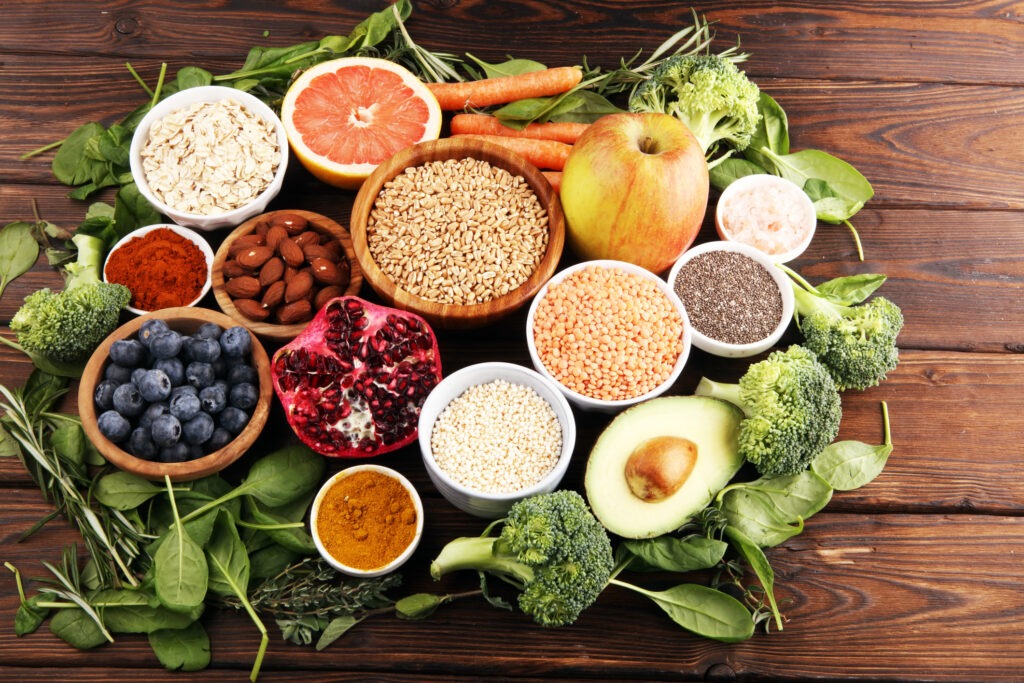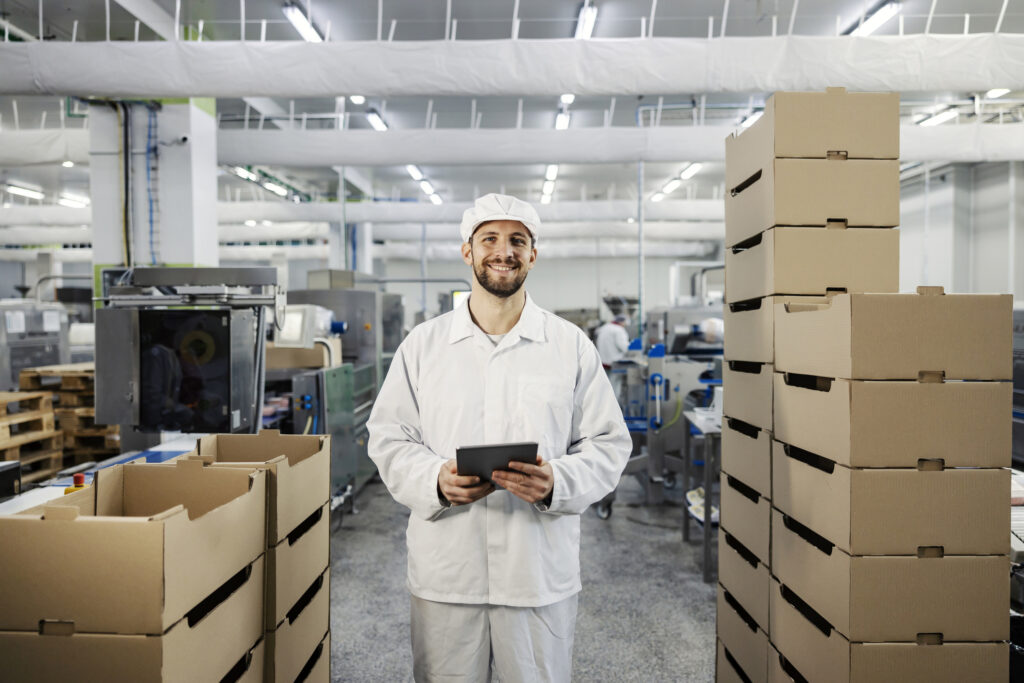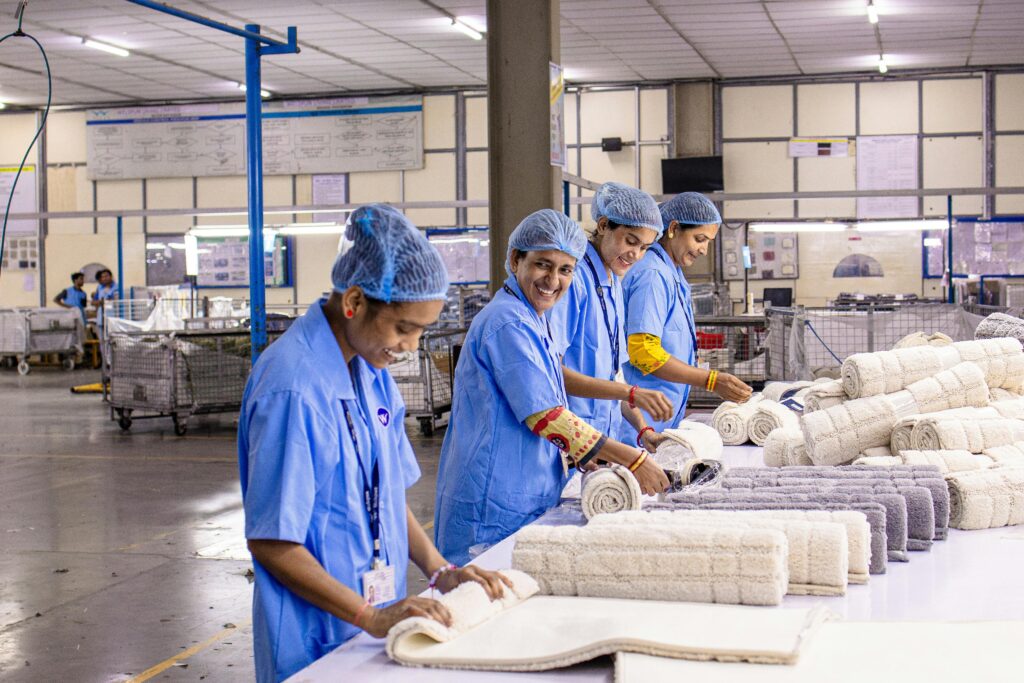Superfood production and packaging by temporary workers from Eastern Europe
Superfoods have gone from being a niche trend to an integral part of many food manufacturers' product ranges. The growing demand for products such as chia seeds, spirulina and aronia berries makes efficient production and flexible and precise packaging of superfoods essential. In order to adapt production capacities at short notice, more and more companies are turning to Temporary workers from Eastern Europe back - a proven solution to ensure quality and punctuality in food production Eastern Europe to ensure the highest quality. Whether it is the packaging of superfoods, food supplements or the entire superfoods production, qualified workers from Eastern Europe and the Baltic States offer German companies reliable and cost-effective support. This article explains how you can have superfoods produced and packaged, the benefits of hiring temporary workers from Eastern Europe and how you can work with them. Temporary work in production improve your production processes.
Table of contents
- Superfood production and packaging by temporary workers from Eastern Europe
- What are superfoods and why are they booming?
- Superfoods production, how does it work?
- How does the superfoods packaging work?
- What quality standards apply to superfood production?
- Superfoods production and packaging - is that possible?
- Why do companies use temporary workers from Eastern Europe?
- What advantages do Eastern European workers offer in superfood production?
- Are there also superfoods from Eastern Europe?
- How can Zeitarbeit International provide support for superfood production and packaging?
Estimated reading time: 14 minutes
What are superfoods and why are they booming?
Superfoods are foods that have a particularly high content of nutrients and health benefits. These include spirulina, avocados, quinoa, goji berries and chia seeds. These indigenous and exotic foods are enjoying a strong resurgence, with a growing number of consumers using superfoods in the expectation that they will have a positive impact on health and wellbeing. A survey found that 70 % of Germans are familiar with the term "superfood" and a third consume it at least once a week. Marketing campaigns and social media trends are further fueling this hype.
The increasing attractiveness is also reflected in the rising sales figures. Statista found that sales of amaranth, a pseudo-grain advertised as a "supergrain", rose from 179 tons in 2015 to over 340 tons in 2016. This meant that sales rose from around € 1.2 million to almost € 3 million within a year. The demand for superfoods is therefore growing rapidly. This goes hand in hand with the need to produce and package these products efficiently in order to reliably serve the market.
Superfoods production, how does it work?
The production of superfoods varies depending on the type of product. A large number of superfoods arrive in Europe as raw materials and have to be processed here. Berries, for example, are cleaned and dried, while plant powders such as moringa or barley grass are ground and stored in containers. Some superfoods are also available as dietary supplements, such as capsules or tablets, which are produced in special facilities. It is always important that all steps are monitored and of high quality.
In practice, many companies rely on specialized production facilities for the manufacture of superfoods. Processing often takes place in food companies, both in Germany and abroad. Eastern Europe in particular is becoming increasingly important in this regard: there are both capable production partners and inexpensive production options that serve the Western market. It is therefore possible that some superfood products are produced in Poland or Romania before they are sold in the target country. Companies benefit from this outsourcing of food production in terms of costs and capacity. In order to staff production facilities, they are increasingly relying on flexible, temporary workers and this is where temporary workers come into play.
How does the superfoods packaging work?
In order to be able to react quickly to fluctuations in production, more and more companies in the Industry sector on flexible personnel solutions. Temporary staffing plays a key role in filling production areas: Temporary workers are used specifically to bridge bottlenecks and stabilize ongoing processes.
- Flexibility during order peaks: Temporary workers enable companies to react quickly to short-term additional requirements.
- Staffing of critical production areas: In production facilities with high throughput, temporary workers ensure continuous production.
- Cost efficiency: Temporary work reduces fixed costs and lowers the entrepreneurial risk in uncertain market conditions.
- Fast access to personnel: Suitable skilled and unskilled workers are immediately available from established personnel service providers.
- Experience with industrial processes: Many temporary workers from Eastern Europe bring with them valuable knowledge in dealing with machines, production facilities and quality standards.
Temporary work in the industry has long been more than just an emergency solution; it serves strategic purposes to ensure production capability. This flexibility represents a clear advantage in international competition. During order peaks, temporary packaging workers often take on these tasks. They fill sachets with superfood powders, seal cans or bottles and apply labels. Temporary workers in the packaging industrysupervise ongoing operations and sort out defective products.
What quality standards apply to superfood production?
High quality and hygiene requirements must be met for the production and packaging of superfoods. As foodstuffs or food supplements, they must comply with food laws and, where applicable, EU directives. This means that production employees must work with hairnets, gloves and protective clothing to prevent contamination. The companies use HACCP concepts (hazard analysis and critical control points) to ensure the safety of food. Every step - from receipt of the raw materials to processing and final packaging - is documented and monitored by those responsible.
Temporary workers in food production are trained in these standards. Eastern European workers who work in the the food industry, The personnel who are to be employed should already have experience in this area or have received appropriate training, and responsible personnel service providers pay attention to this. Quality must be maintained at all times. This includes regular quality checks during production: every batch of superfood products is checked by employees with regard to weight, sealing and labeling. In this way, companies guarantee that safety and quality are also ensured when working with temporary employees in food production.

Superfoods production and packaging - is that possible?
More and more companies prefer to outsource superfood production, as it is very extensive. Whether start-ups with smoothie visions or large corporations with an organic mission, many outsource production and superfood packaging to specialized service providers. The main thing is that the chia seeds end up on the shelf nicely packaged and on time, often with packaging by temporary workers from Eastern Europe.
This is how external superfood production and packaging works:
- Collaboration with superfood manufacturer: Specialized suppliers take care of the entire process, from mixing the superfood ingredients to filling and labelling.
- Low production costs abroad: Many of these companies are located in Eastern European countries, where lower wage and operating costs create competitive advantages.
- Advantages through existing infrastructure: Companies save on investments in machinery or production space and benefit from the know-how of experienced producers.
- Flexible scaling: Outsourcing enables production volumes to be adjusted quickly, especially when new products are launched or demand is seasonal.
Alternative: in-house production with temporary workers:
- Superfoods production in our own factory: If the infrastructure is in place, production can remain in-house - additional staff can be booked in flexibly as required.
- Use of temporary workers in production: Temporary workers take on temporary tasks, such as operating new filling lines or working additional shifts during peaks in demand.
- Efficient implementation without long-term commitment: The products can be manufactured almost "on demand" without the need to permanently employ staff.
Whether through contract manufacturers for superfoods or internally with nimble Temporary workers in productionToday, superfood production and packaging is flexible and efficient. Companies can pick up on trends at lightning speed and launch new products on the market without burning their fingers.
Why do companies use temporary workers from Eastern Europe?
In view of the shortage of skilled workers and fluctuating order situations, many companies are looking for flexible solutions. Temporary workers from Eastern Europe are particularly in demand. But for what reason? On the one hand, in countries like Poland, Romania or the Baltic states have a large number of motivated and qualified workers at their disposal. Workers from Eastern Europe are highly motivated and hard-working. They work efficiently and intensively to achieve optimum results, but quality always takes priority. Companies in Germany greatly appreciate this attitude to work.
If additional production or packaging staff are needed at short notice, for example due to a large order or seasonal demand in the food industry, personnel service providers can provide suitable employees within a short space of time. These employees can often at least communicate in German or English and learn quickly. In addition, Eastern European temporary workers are usually highly adaptable. They are familiar with shift work and are willing to work at weekends or at unusual times if the job requires it. It is precisely this flexibility that makes them so valuable in the superfood sector and in food production as a whole.

What advantages do Eastern European workers offer in superfood production?
Cooperation with temporary workers from Eastern Europe offers several advantages. One key aspect is the potential for savings: due to the lower wages in Eastern Europe compared to Western Europe, companies can reduce their personnel costs by using production help from these regions. Personnel service providers usually pass these cost savings on to their clients. Temporary employment agencies also take on the administrative tasks, ranging from recruitment and travel to invoicing. This saves you time and effort in the area of personnel management.
An additional advantage is that temporary workers can be deployed precisely when superfood production peaks. For example, during an extensive retail promotion or at Christmas time when there is an increased demand for seasonal workers in the food industry. As soon as the order has been completed, you simply restore the number of employees without any labor law difficulties. In addition, this type of temporary work in production is legally protected by an employee leasing agreement, which means that your company is legally on the safe side.
You also benefit from the experience and work ethic of the Eastern European staff. Many of them have already worked in food production and are very careful with hygiene regulations. Thanks to their great commitment, production targets are met or even exceeded. To summarize: With the help of this workforce in food production, companies can increase their competitiveness without having to reduce efficiency or quality.
Are there also superfoods from Eastern Europe?
Eastern Europe is not only known as the region of origin for the chokeberry (aronia berry), which is grown in large quantities in Poland and other Eastern European countries. Eastern Europe is also home to many chokeberry plantations, with Poland being one of the most important producers of these berries. The aronia berry, a real local superfood, is rich in vitamins and antioxidants. It is processed into juices, powder or dried berries. Sea buckthorn, a vitamin C-rich, orange-colored berry, also thrives along the Baltic coast and in the Baltic States. In Lithuania and Latvia, sea buckthorn is traditionally harvested and used to make juices and oils, which are considered a superfood.
These "local" superfoods illustrate that Eastern Europe not only serves as a workbench for Western food trends, but also makes a valuable contribution itself. It is interesting to note that the same Eastern European workers are often involved in the production and packaging of such products, both for export and for the domestic market. This closes the circle: Eastern Europe provides both the raw materials and the production staff that make the superfood boom possible. For companies in Western Europe, this opens up the opportunity to fall back on proven partners and resources from Eastern Europe, be it for the procurement of superfood ingredients or the deployment of personnel.
Conclusion
Superfoods are not just a passing fad, but have permanently established themselves in the contemporary food market. To meet the high demand, companies need flexible approaches to production and packaging. Temporary workers from Eastern Europe are proving to be an excellent workforce: with their flexibility, experience and motivation, they can cope with production peaks and guarantee high quality standards. If companies receive the right support, they can manage the superfood boom efficiently and successfully.
How can Zeitarbeit International provide support for superfood production and packaging?
Zeitarbeit International, an experienced personnel service provider, specializes in personnel placement in Eastern Europe. If you need help with the production or packaging of superfoods, we can offer you support through our large network of personnel. We are looking for suitable Temporary workers from Eastern Europe for your requirements, be it production assistants, packers or other skilled workers. We take care of all administrative aspects, from the selection of applicants to travel and legally compliant employee leasing.
Our many years of experience enable us to know the labor markets in Eastern Europe inside out and to understand the requirements of the German food industry. You benefit from fast placements, fair costs and carefully screened candidates. Whether you need ten additional packaging assistants for a superfood batch at short notice or long-term production staff for a new product, Zeitarbeit International offers the right solution. You are welcome to contact us for a no-obligation consultation. Together we will ensure that your superfood project is optimally staffed.
Similar topics

FAQ
Superfoods are characterized by an above-average content of nutrients (e.g. minerals, vitamins, antioxidants). Although the term has no legal definition, it is used in marketing for products that are considered to be particularly healthy or functional. Typical examples are chia seeds, goji berries, matcha and blueberries.
Some superfoods are offered in the form of food supplements, such as powders or capsules (e.g. spirulina tablets). However, many other superfoods are natural products (such as fruit, vegetables and seeds) and not conventional food supplements. In any case, correct declaration and packaging in accordance with food law requirements is important.
Production is geared towards the product. Superfoods of plant origin (such as seeds, algae and berries) are usually harvested, dried or ground and then packaged. In some cases, further processing into powders, bars or capsules is carried out. Hygienic conditions and quality assurance in each individual processing step are of crucial importance.
Temporary workers provide support in all areas of production and packaging. They operate machines for filling and packaging, portion products, apply labels to packaging and carry out quality checks. Depending on requirements, they can also be used in warehouse logistics (e.g. picking superfood products). Thanks to their support, production volumes can be flexibly increased.
There are a large number of workers in Eastern Europe who are willing to work temporarily in Western Europe. Temporary workers from Eastern Europe are often highly motivated, reliable and adaptable. Companies also appreciate the fact that labor costs are lower in comparison and that placement agencies in Eastern Europe can quickly find suitable employees. In this way, open production facilities can be filled quickly.
In industry in particular, Eastern European workers are characterized by their commitment and experience. They are flexibly available for shift work or seasonal peaks. At the same time, companies benefit from lower wage costs, which makes production more economically viable. Cooperation with these skilled workers usually takes place via trustworthy recruitment agencies in Eastern Europe, which guarantee a smooth process.
It is easiest to go through specialized personnel service providers such as Zeitarbeit International. These agencies recruit suitable employees in Eastern Europe and offer them to German companies through temporary employment agencies. You can register your need for personnel, such as production assistants from Eastern Europe, and the agencies take care of selection, contractual matters and travel. In this way, you get qualified personnel quickly without having to worry about recruiting abroad yourself.